 W
WThis list contains the mottos of organizations, institutions, municipalities and authorities.
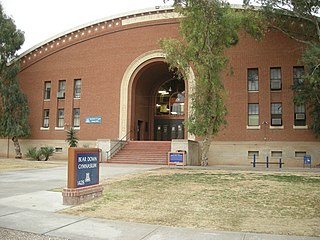 W
W"Bear Down" is the official motto of the University of Arizona, located in Tucson, Arizona. It is the inspiration for "Bear Down, Arizona!," the unofficial fight song of the school's Arizona Wildcats. The official fight song is "Fight! Wildcats! Fight!" written by Douglas Holsclaw.
 W
WGod, Honour, Fatherland or Honour and Fatherland is one of the unofficial mottos of Poland. It is commonly seen as the motto of the military of Poland, and has been confirmed as such by several Polish legal decrees. It traces its history to the era of partitions of Poland and Polish service in Napoleonic army.
 W
W"The customer is always right" is a motto or slogan which exhorts service staff to give a high priority to customer satisfaction. It was popularised by pioneering and successful retailers such as Harry Gordon Selfridge, John Wanamaker and Marshall Field. They advocated that customer complaints should be treated seriously so that customers do not feel cheated or deceived. This attitude was novel and influential when misrepresentation was rife and caveat emptor was a common legal maxim. Variations include "le client n'a jamais tort" which was the slogan of hotelier César Ritz who said, "If a diner complains about a dish or the wine, immediately remove it and replace it, no questions asked". A variation frequently used in Germany is "der Kunde ist König", while in Japan the motto "okyakusama wa kamisama desu" (お客様は神様です) meaning "the customer is a god", is common.
 W
W"Detente bala" is an inscription used by Spanish soldiers in the 19th and 20th centuries.
 W
WEqual justice under law is a phrase engraved on the West Pediment, above the front entrance of the United States Supreme Court building in Washington D.C. It is also a societal ideal that has influenced the American legal system.
 W
WFor our freedom and yours (Polish: Za naszą i waszą wolność) is one of the unofficial mottos of Poland. It is commonly associated with the times when Polish soldiers, exiled from the partitioned Poland, fought in various independence movements all over the world. First seen during a patriotic demonstration to commemorate the Decembrists, held in Warsaw on January 25, 18311, it was most probably authored by Joachim Lelewel. The initial banner has the inscription in both Polish and Russian, and was meant to underline that the victory of Decembrists would also have meant liberty for Poland. The slogan got shorter with time; the original had the form 'In the name of God, for our freedom and yours' ('W imię Boga za Naszą i Waszą Wolność'). The original banner has been preserved in the collection of Muzeum Wojska Polskiego in Warsaw.
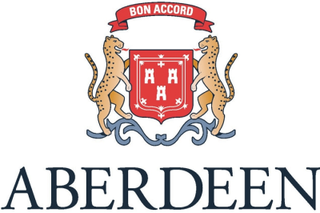 W
WThe coat of arms of Aberdeen consists of three towers within a border decorated with fleurs-de-lis. This design is known to have been used on city seals from the 15th century onwards, if not earlier.
 W
WHonneur, patrie, valeur, discipline is the motto of the French Navy. It is found inscribed on all ships and buildings, sometimes with each word on its separate plaque at a corner of the superstructure.
 W
WJe me souviens is the official motto of Quebec, a province of Canada. The motto, translated literally into English, means: "I remember." It may be paraphrased as conveying the meaning: "We do not forget, and will never forget, our ancient lineage, traditions, and memories of all the past."
 W
WJoin, or Die. is a political cartoon attributed to Benjamin Franklin. The original publication by The Pennsylvania Gazette on May 9, 1754, is the earliest known pictorial representation of colonial union produced by an American colonist in Colonial America. It is a woodcut showing a snake cut into eighths, with each segment labeled with the initials of one of the American colonies or regions. New England was represented as one segment, rather than the four colonies it was at that time. Delaware was not listed separately as it was part of Pennsylvania. Georgia, however, was omitted completely. Thus, it has eight segments of a snake rather than the traditional 13 colonies. The poster focused solely on the colonies that claimed shared identities as Americans. The cartoon appeared along with Franklin's editorial about the "disunited state" of the colonies and helped make his point about the importance of colonial unity. It later became a symbol of colonial freedom during the American Revolutionary War.
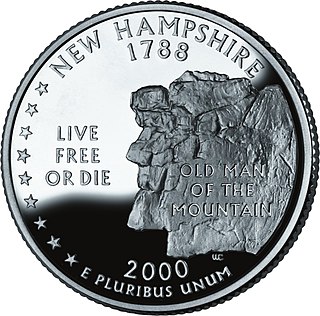 W
W"Live Free or Die" is the official motto of the U.S. state of New Hampshire, adopted by the state in 1945. It is possibly the best-known of all state mottos, partly because it conveys an assertive independence historically found in American political philosophy and partly because of its contrast to the milder sentiments found in other state mottos.
 W
WMeine Ehre heißt Treue was the motto of the Schutzstaffel (SS) under Adolf Hitler and the Nazi Party in Nazi Germany.
 W
WThe mottos of Francoism are mottos which encapsulate the ideals of the Francoist dictatorship. Although the regime had many ideological influences, it employed Falangism in its popular movements. Falangist ideology was easily incorporated in the creation of mottos as it is believed to demonstrate a certain reluctance towards political agendas, and to favour empiricism, taking action, and the simplification of ideas.
 W
WOlim L'Berlin was the name of a Facebook page that coined a snowclone in 2014, and was terminated in early 2015. Comparing the high cost of living in Israel with the comparatively cheaper economic climate in Berlin, which has a growing community of Israeli expatriates, the page urged more Israelis to move to Germany, raising a storm of protest in Israeli social and political circles. Compounding the reaction was the Facebook page's use of the same verb (olim) that Jews use for aliyah.
 W
WOrthodoxy, Autocracy, and Nationality, also known as Official Nationality, was the dominant imperialist ideological doctrine of Russian emperor Nicholas I. The doctrine sought imperial unity under Orthodox Christianity and the absolute authority of the emperor, while suppressing ideas deemed destructive to that unity. It followed a broader European reactionary trend that sought to restore and defend political institutions that were overthrown in the Napoleonic Wars.
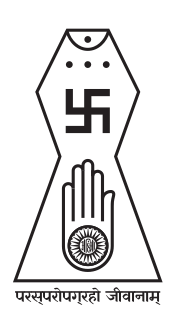 W
WParasparopagraho Jīvānām (Sanskrit) is a Jain aphorism from the Tattvārtha Sūtra [5.21]. It is translated as "Souls render service to one another". It is also translated as, "All life is bound together by mutual support and interdependence." These translations are virtually the same, because Jains believe that every living being, from a plant or a bacterium to human, has a soul and the concept forms the very basis of Jainism.
 W
WIn Turkish, the slogan "Yurtta sulh, cihanda sulh" – "Peace at home, peace in the world" – was first pronounced by Mustafa Kemal Atatürk on 20 April 1931 to the public during his tours of Anatolia. This stance was later integrated and implemented as the foreign policy of the Republic of Turkey.
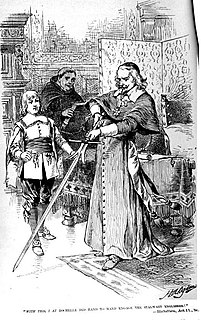 W
W"The pen is mightier than the sword" is a metonymic adage, created by English author Edward Bulwer-Lytton in 1839, indicating that the written word is more effective than violence as a tool for communicating a point. In some interpretations, written communication can refer to administrative power or an independent news media.
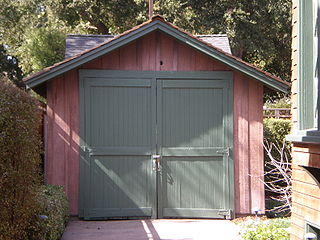 W
WThe rules of the garage are a set of eleven rules that attempt to encapsulate the work ethos that Bill Hewlett and David Packard when they founded Hewlett-Packard. Since Hewlett-Packard was one of the earliest success stories of the information technology sector, it also used to more broadly describe the work ethos of Silicon Valley.
 W
WThe Scout Motto of the Scout movement, in various languages, has been used by millions of Scouts around the world since 1907. Most of the member organizations of the World Association of Girl Guides and Girl Scouts (WAGGGS) share this same motto.
 W
WSovereignty unconditionally belongs to the People is the founding principle of the Republic of Turkey. This principle is written on the wall behind the chairman of the General Assembly Hall in the Grand National Assembly.
 W
WTanto monta, monta tanto, Isabel como Fernando or simply Tanto monta, monta tanto was the alleged motto of a prenuptial agreement made by the Spanish Catholic Monarchs, Isabella I of Castile and Ferdinand II of Aragon. During their joint reign they did in fact support each other effectively in accordance with their motto of equality. Still, the wording "Tanto monta, monta tanto, Isabel como Fernando" is actually a popular saying invented many centuries later, not the real motto. Besides, and contrary to popular belief, Tanto monta was only the motto of King Ferdinand of Aragon, and never used by Isabella.
 W
WTeribus ye teri odin or teribus an teriodin is popularly believed to have been the war cry of the men of Hawick at the Battle of Flodden, and still preserved in the traditions of the town. In 1819, James Hogg wrote a border ballad with the same name.
 W
WTravail, famille, patrie was the tripartite motto of the French State during World War II. It replaced the republican motto, Liberté, égalité, fraternité of the Third French Republic.
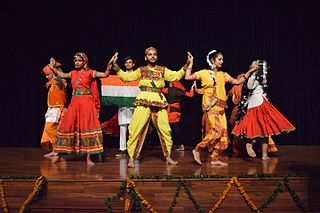 W
WUnity in diversity is used as an expression of harmony and unity between dissimilar individuals or groups. It is a concept of "unity without uniformity and diversity without fragmentation" that shifts focus from unity based on a mere tolerance of physical, cultural, linguistic, social, religious, political, ideological and/or psychological differences towards a more complex unity based on an understanding that difference enriches human interactions. The idea and related phrase is very old and dates back to ancient times in both Western and Eastern Old World cultures. It has applications in many fields, including ecology, cosmology, philosophy, religion and politics.
 W
W"Victory or death" and its equivalents, is used as a motto or battle cry.
 W
WZa dom spremni! was a salute used during World War II by the Croatian Ustaše movement. It was the Ustaše equivalent of the fascist or Nazi salute Sieg heil.
 W
WZazpiak Bat is a heraldic nickname for the Basque coat of arms which includes the arms of the seven provinces mentioned, stressing their unity. It was designed by the historian Jean de Jaurgain in 1897 for the Congrès et Fêtes de la Tradition basque celebrated at Saint-Jean-de-Luz.